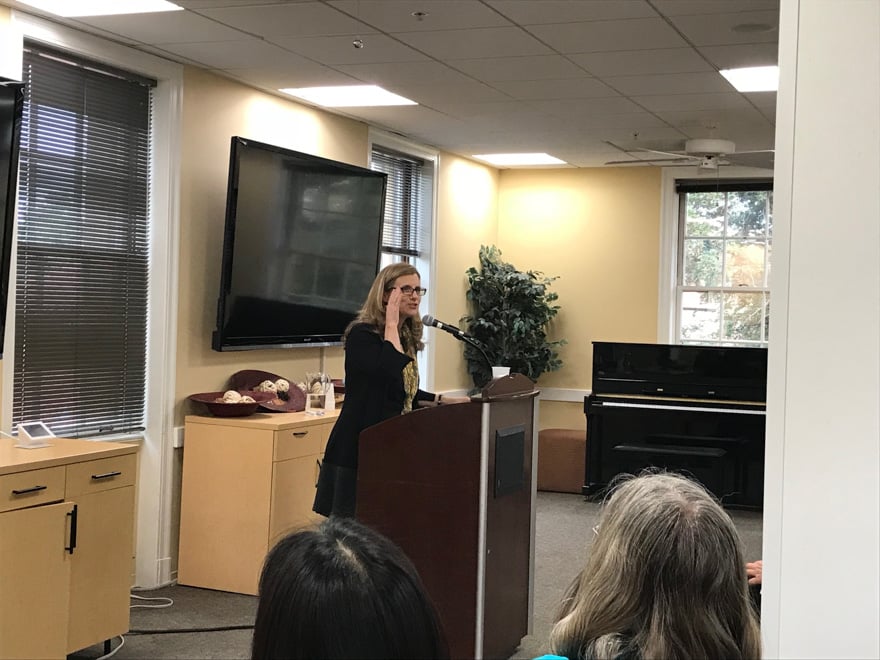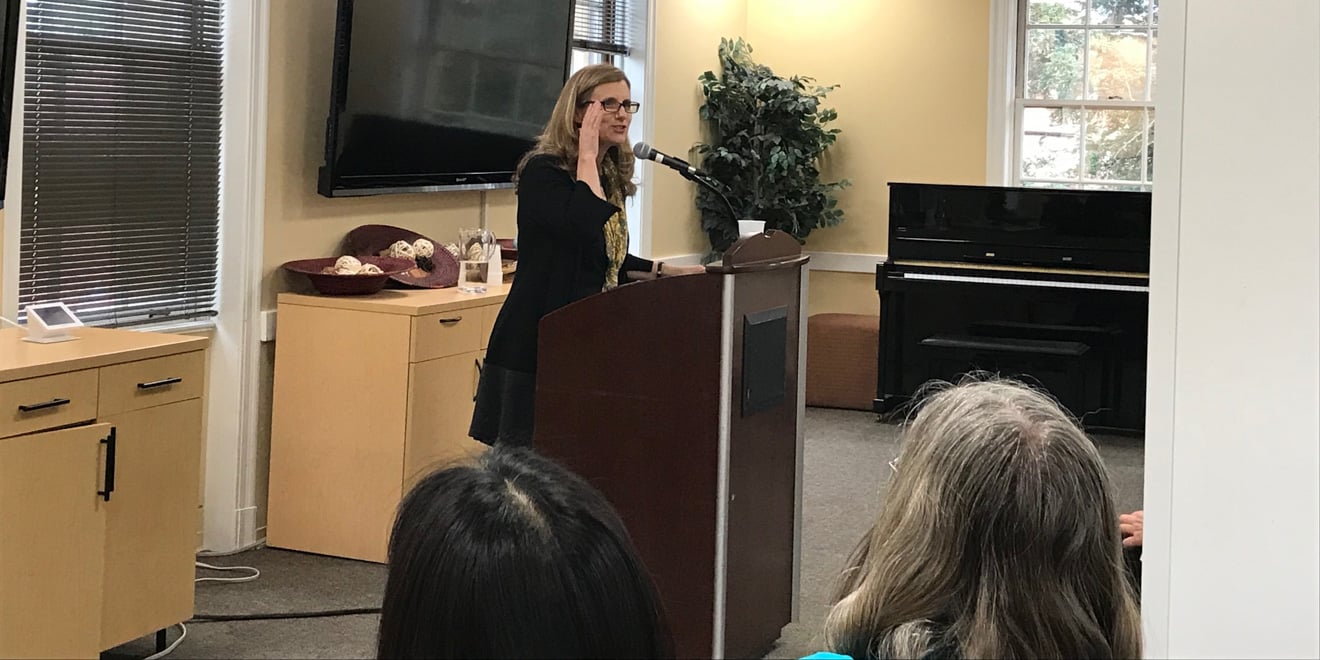In the second talk of this year’s “What Matters to Me and Why” series in Old Union on Wednesday afternoon, Richard E. Lang Professor of Law and Dean of Stanford Law School M. Elizabeth Magill emphasized the importance of facts, the pursuit of knowledge and gratitude.
Magill discussed problems with today’s political climate in the larger context of history, expressing optimism despite new challenges of the contemporary era.
She emphasized the relevance of empirical knowledge in law, politics, technology and related fields.

“Facts matter to me a lot,” she said. “As someone with training as a lawyer and as a student of legal systems, I think I have a particular perspective on the importance of testing and establishing facts and what happens when we go wrong with that.”
Magill also addressed the problems of partisan divisions exacerbated by the rise of fake news.
“Whether we can establish facts anymore and whether we can agree on them is, of course, is a topic of a lot of hand-wringing today,” she said.
Magill cited technological advancements as one factor that augments political polarization, saying they have made it more difficult to know whether what one sees or hears is true. She expressed deep concerns about this challenge, especially in a university environment, where she said the quest for knowledge should be a top priority.
“I think we should all be deeply shaken by this threat [of uncertainty over facts],” she said. “If we can’t establish test and agree on facts, our capacity to generate knowledge will be degraded.”
Despite the threat of fake news and polarization, Magill expressed faith that the problem can be addressed when placed in the greater context of historical events.
She brought up the Revolutionary War, specifically the propagandized depiction of the Boston Massacre, as an instance in which the manipulation of facts caused deep divisions between the people.
“Paul Revere was a great propagandist… [He] was pretty good at fake news,” said Magill.
“It’s just not the case … that we are more divided today on matters of of great importance than we or any other society has ever been,” she added.
Magill said that she views the challenges of fact-checking in the age of rapid technological advancement as a call to action. She called on younger members of her audience to contribute to mending contemporary society’s complicated relationship to politics and truth.
“I think the next generation is going to help us solve this current threat, and I can’t wait to see it unfold,” Magill said.
When asked what gives her an optimism about the next generation, Magill referred to her students in Stanford Law School.
“I’m always inspired by their creativity and their ambition,” she said. “I’m an optimist by nature, probably, but it’s our students. That’s an easy one.”
Contact Karen Kurosawa at karen16‘at’ stanford.edu.
